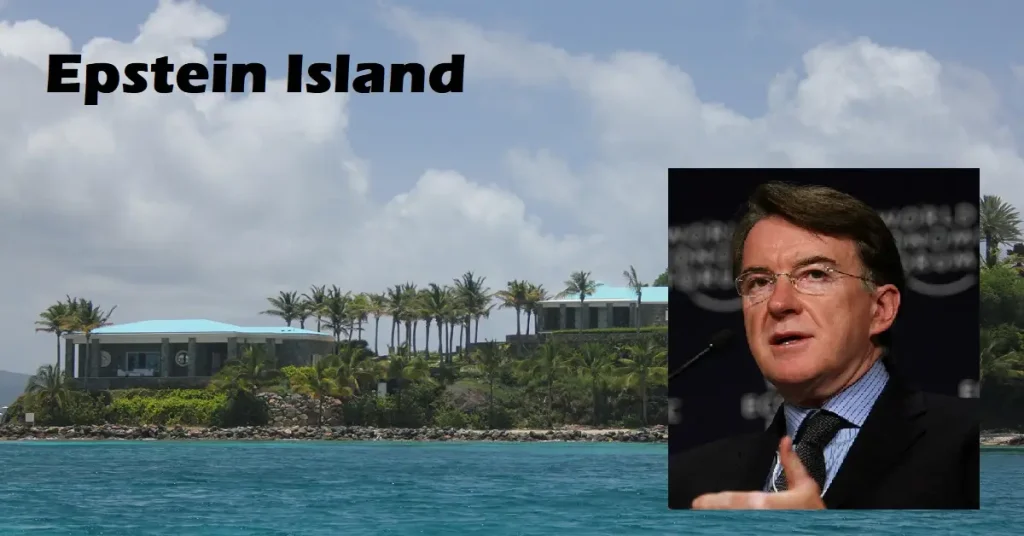Starmer removed Peter Mandelson due to undisclosed emails showing loyalty to Epstein. No evidence currently proves that Mandelson ever visited Epstein’s island.
Keir Starmer dismissed Peter Mandelson as UK ambassador to the United States after newly surfaced emails revealed a deeper and more supportive relationship with Jeffrey Epstein than was known during Mandelson’s vetting. These messages included advice to Epstein, assertions that his 2008 conviction was wrongful, references to his support during legal trouble, and a handwritten note calling him “my best pal.” These revelations created political pressure that Starmer judged too serious to ignore, citing that the extent of Mandelson’s ties was “materially different from that known at the time of his appointment.”
The Foreign Office said that when Mandelson was appointed in February 2025, the full scale of his correspondence with Epstein was not disclosed—or at least not fully appreciated. Among the emails now public, one from 2008 encouraged Epstein to “fight for early release” following his conviction, and other communications expressed emotional support, described friendship enduring “through all this,” and urged Epstein to remain strong. Also released was a note in a birthday book, likely prepared by Epstein’s associate Ghislaine Maxwell, in which Mandelson referred to Epstein as a close friend. These messages, previously unseen by the public, heightened concerns that the ambassador’s personal judgments could pose diplomatic and moral risks.
In his responses, Mandelson has expressed regret—particularly for continuing the relationship “far longer than should have been.” The ambassador insisted there is no record of wrongdoing witnessed firsthand, and claimed to have been misled by assurances from Epstein’s legal team. Starmer portrayed the decision to sack Mandelson as one based on new, material information and a matter of public responsibility. The government emphasized that this was not merely about past associations but about misjudgments in presenting those associations during vetting.
Multiple political figures across party lines described the emails as deeply troubling. Some demanded a full investigation into Mandelson’s ties; others criticized the vetting process itself, asking whether the Prime Minister or his team had knowledge of any elements of the relationship but downplayed or overlooked them. Questions were also raised about the timing of Mandelson’s removal—coming just days before a major state visit from the US President—which amplified the stakes of diplomatic credibility.
Read More:
- Is The Shooter of Charlie Kirk’s Assassination A Transgender?
- Charlie Kirk’s Wife, Erika, Just Tweeted This Today Before His Husband’s Death
Regarding the specific claim that Peter Mandelson visited Epstein’s private island—Little Saint James—no credible evidence has emerged to confirm such a visit. Some released photos in the birthday book reference island settings, tropical locations, and landscapes that resemble resorts. In one email, Mandelson is quoted asking Epstein, “When are you going to the island at Xmas? What are your plans and do I fit into them?” That line has been interpreted by some as implying travel to the island around Christmas. But a single question or reference does not equal proof of visiting; no flight logs or witness testimonies have been produced that confirm Mandelson stepped foot on the island.
The question of island attendance became central in media and public debates because of Epstein’s island’s notorious reputation. For many, even a hint of involvement there carries damage. But legal standards require more than implication—firm documentation, images, verified records. Until such evidence surfaces, the island visit remains unproven.
This controversy offers broader lessons about diplomacy, vetting, and public accountability. When appointments are made to sensitive roles—especially ambassadorial posts—past associations and public writings must be scrutinized thoroughly. Practical tip for those interested in public service: always ensure that any past correspondence or association with controversial figures is disclosed, assessed, and discussed with your appointing authorities. It is better for leaders to address potential issues upfront rather than face political crisis later.
The Mandelson case shows how new evidence—even decades old—can change what is considered acceptable. Many supporters of Mandelson argued that belief in Epstein’s innocence at one time was not necessarily disqualifying—but that changed when the conviction, legal outcomes, and new documents made claims of innocence harder to maintain. Leadership in government must often reckon with the evolution of evidence and public standards.
On the question “Was he on Epstein Island?” the verdict remains: no, there is no proof. The emails suggest conversations and invitations, but proof of travel remains absent. Meanwhile, the reason for firing is clear—undisclosed emails showing deeper loyalty to Epstein, misaligned with what was known at the time of his diplomatic appointment.

